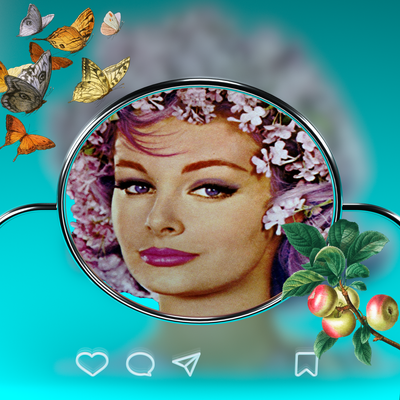
This column first ran in John Paul Brammer’s Hola Papi newsletter, which you can subscribe to on Substack.
¡Hola, Papi!
I regret not thinking of you sooner, but I think you’re the man for this question.
How does a person deal with knowing that an online presence would likely increase their chances of success in their field but they don’t want to be known online? My career would undoubtedly benefit and I care a lot about my work, so I might have to suck it up, put myself out there, and face the horror of a public Instagram profile with hashtagged posts. Sharing art is hard enough without the mortifying ordeal of being online.
My anxiety is specifically about being on social media. I’m severely online. You and I both know it’s bad out there. How does anyone see an upside nowadays?
I also feel like a hypocrite. I consume and engage with public/semi-public content (what feels like every hour of every day), but I don’t add to it. Can you call that a “lurker mentality”? How do you participate in the world?
Signed,
Digital Debutante
Hey there, DD!
This feels like the sister letter to the one about being too offline. Seems like everyone doubts their internet habits. But it makes sense! On the whole, social media is still a relatively new phenomenon.
If you’re asking me whether you should start engaging more on social media to advance your career, well, I can say it worked for me. If you’re asking me how to do this, what habits you should cultivate, and what approach you should take, I think the best way to help you out would be to give a frank account of what that’s looked like for me. I share many of your anxieties about the internet, and I’ve spent a lot of time digging into their root cause.
Perhaps the most important thing to understand, the thing I’m still wrestling with, is that social media abstracts humanity — both your own and that of strangers. When we talk to someone in person, we can more easily recognize them as, well, a person. They have a face. We might assume they have a rich interior world of their own with requisite hopes and fears — in other words, they are like us.
We are more likely (though not always) to pick up on crucial subtleties of communication — tone, facial expression, physical gestures, and so on. These can help calibrate messages closer to their intended meaning.
On the internet, we do not have a body. We do not have a face. We have representations of those things. We have an image or text or some combination of the two. What I’ve noticed is that something is absent here: that “inner world” element. We stop being people and we become “things.” And the thing about “things” is they are possessable, disposable, usable, and reusable.
I think that, on the whole (furiously knocking on wood), the internet has been kind to me, yet I’ve still seen things said about me that I wouldn’t have cooked up in my worst nightmares. I’m talking about things that made me want to throw up when I read them.
It doesn’t just go one way either. My time on the internet has blurred the distinction between my online identity with my offline personhood — my sense of self. I’ve placed a lot of value in metrics — in numbers that are meant to determine how funny I am, how insightful, how attractive, how talented. I would not genuinely invest in these things if I had not, on some level, agreed that I am my social-media profile.
When you go from being a person to an image or a text, it gives the viewer (or reader) a good deal of room to project meaning. They can inject their own fictions and anxieties into the hollow shell of your digital presence and react accordingly — in a way that feels righteous or pleasurable or useful for their social standing in their in-group. Most of social media is people talking to themselves under the illusion that they are talking to each other.
A good deal of suffering online crawls out from the chasm between “human” and “object” — between “human” and “account.” We might understand, on an intellectual level, that our social-media profiles are not perfect representations of our entire being, but, on an emotional and psychological level, it’s another story. The result is you, a human, being treated as a thing. That can do serious damage to your sense of self. It can topple it completely.
It sounds like a nightmare, doesn’t it? Yet many of us log on anew every day. As you mentioned, it can be great for your career, but I don’t think that’s really what keeps people hooked. Most of the chronic social-media users I know are in a lot of pain, and they are candid about it. “Oh, Twitter is miserable,” they’ll confess, or they’ll talk about how much anxiety it gives them or how they wish they could use it less — before firing off tweets from the bathroom.
Part of it is fundamental dishonesty with the peculiar pleasures social media can bring: Gossip. Seeing people you dislike squirming. Joining dogpiles. Finding an outlet for your id. Few would admit to finding enjoyment in other people’s pain, yet many social-media phenomena can be explained thus. It’s like scratching an itch or picking at a wound: It feels good. It’s cathartic.
As with anything that offers release, it can be addictive. Even if it hurts you. Even if it’s rotting your brain. I’m certainly not exempt from any of this.
I don’t mean to say it’s all doom and gloom on the internet. Social media has brought me into contact with some truly wonderful people, given me insights into experiences I hadn’t known about, and, well, sometimes it’s just really funny. But, ultimately, to bring your whole self to the internet, which largely perceives other people as objects, is a dangerous gamble.
So I think, DD, that if you’ve resolved to use social media to boost your work, the best way to protect yourself is to maintain a robust distinction between your inner self and your online presence. Remember that, at its best, social media is a tool. You ought not let it define you or creep into your self-concept. It is inherently dehumanizing, and, if you let it in too deep, you will end up dehumanizing yourself.
Hope that helps. No one uses hashtags anymore!
Con mucho amor,
Papi
Originally published on April 11, 2022
This column first ran in John Paul Brammer’s Hola Papi newsletter, which you can subscribe to on Substack. Purchase Brammer’s book, Hola Papi: How to Come Out in a Walmart Parking Lot and Other Life Lessons, here.





